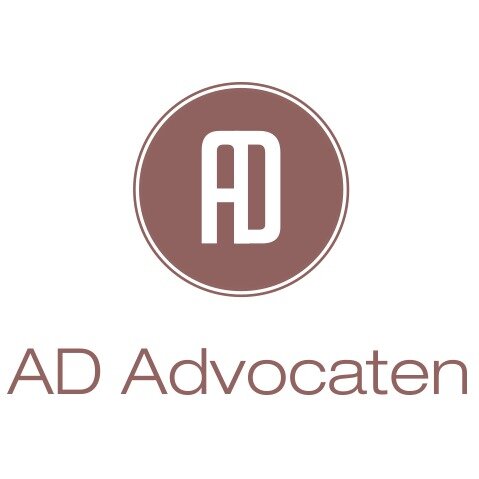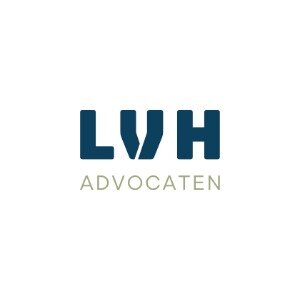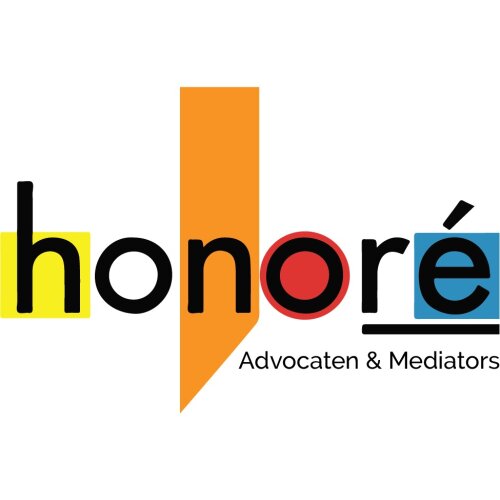Best Conveyancing Lawyers in Netherlands
Share your needs with us, get contacted by law firms.
Free. Takes 2 min.
Free Guide to Hiring a Real Estate Lawyer
Or refine your search by selecting a city:
List of the best lawyers in Netherlands

About Conveyancing Law in Netherlands
Conveyancing in the Netherlands refers to the legal process of transferring ownership of real estate from one party to another. Unlike in many countries, the Dutch system requires that all property transfers be formalized by a civil law notary. The notary ensures that the process is legally binding and that the interests of all parties are protected. The process covers various aspects, including drafting the purchase agreement, carrying out legal checks, managing financial settlements, and finalizing the transfer at the Land Registry (Kadaster).
Why You May Need a Lawyer
While Dutch law assigns a central role to the notary in conveyancing transactions, there are several situations where legal advice from a specialized lawyer can be beneficial. You may need a lawyer if you encounter disputes over property boundaries, inheritance claims, or errors in contracts. Lawyers can also assist with negotiations, review purchase agreements, handle complex title searches, and represent you in court if a dispute arises. For non-Dutch speakers, legal advisors fluent in your language can help you understand your rights and obligations. Engaging a lawyer is especially advisable when buying commercial properties, dealing with jointly owned real estate, or when unusual legal issues arise during the purchase or sale of property.
Local Laws Overview
The Dutch legal system has specific rules governing the conveyancing process:
- Property transfers must be executed by a civil law notary.
- The notary holds the purchase funds in a secure third-party account until the transaction is finalized.
- Ownership is officially transferred once the deed of transfer is signed and registered with the Land Registry (Kadaster).
- All agreements related to real estate, including purchase agreements, should be made in writing to be legally enforceable.
- Buyers are granted a statutory three-day reflection period after signing a residential property purchase agreement, allowing them to rescind the agreement without penalty.
- Sellers are required to disclose relevant information about the property, including known defects.
- Special rules may apply to protected monuments, leasehold properties (erfpacht), and municipal pre-emption rights.
Frequently Asked Questions
What is the role of the notary in Dutch conveyancing?
The notary is a government-appointed legal professional responsible for preparing the official transfer deed, ensuring the legality of the transaction, handling and safeguarding the funds, and registering the change of ownership with the Land Registry.
Do I need to hire a lawyer to buy a house in the Netherlands?
It is not legally required, as the notary oversees the legalities, but a lawyer can provide additional support, especially if there are unusual circumstances, disputes, or complex legal implications.
How long does the conveyancing process take?
The timeline can vary, but it typically takes from a few weeks up to a few months. Factors influencing the length include mortgage arrangements, title searches, and scheduling for the signing with the notary.
What happens if a problem is found with the property?
If significant defects are discovered that were not disclosed by the seller, the buyer may have rights to claim compensation or even rescind the purchase, depending on the circumstances and contractual terms.
Is the purchase agreement binding?
Yes, once signed, the purchase agreement is binding after the three-day cooling-off period for residential properties. After this period, withdrawal without penalty is usually not possible unless agreed upon conditions are not met.
What is the Kadaster?
The Kadaster is the Dutch Land Registry. It keeps records of property ownership, boundaries, and real estate transactions. Registration at the Kadaster is required for an ownership transfer to be legally recognized.
Are there special rules for buying as a non-resident or foreigner?
Generally, the process is the same for Dutch and non-Dutch buyers, although foreign buyers may face additional requirements regarding anti-money laundering checks or financing.
What costs are involved in conveyancing in the Netherlands?
Buyers should expect notary fees, Land Registry charges, real estate agent commissions, possible legal fees, and any applicable taxes such as transfer tax.
Can property be owned jointly?
Yes, joint ownership is possible. It is common for partners or spouses to purchase a property together, usually as co-owners (joint tenants or tenants in common). The rights and obligations should be clearly set out in the purchase deed.
What are the main legal risks in Dutch conveyancing?
Risks include undisclosed defects, title encumbrances, planning restrictions, and errors in contract drafting. An experienced lawyer can help manage and minimize these risks.
Additional Resources
Kadaster (Land Registry): Responsible for official property registration and information. Koninklijke Notariële Beroepsorganisatie (Royal Dutch Association of Civil-law Notaries): Information about the role and services of notaries. Netherlands Bar Association (Nederlandse Orde van Advocaten): Find registered legal professionals. Juridisch Loket: Government-funded service offering initial free legal advice. Consuwijzer: Government website with consumer rights information, including housing and property.
Next Steps
If you are considering buying or selling real estate in the Netherlands, start by seeking preliminary information from public resources and the notary. For more complex situations or if you need help understanding contracts or dealing with disputes, consult a lawyer who specializes in Dutch property law. Always verify the credentials and experience of any legal advisor. Prepare all relevant documents such as identification, purchase or sale agreements, and correspondence with other parties. Schedule a consultation to discuss your specific situation and receive tailored legal guidance. Taking these steps will help you navigate the Dutch conveyancing process with confidence and protect your interests throughout the transaction.
Lawzana helps you find the best lawyers and law firms in Netherlands through a curated and pre-screened list of qualified legal professionals. Our platform offers rankings and detailed profiles of attorneys and law firms, allowing you to compare based on practice areas, including Conveyancing, experience, and client feedback.
Each profile includes a description of the firm's areas of practice, client reviews, team members and partners, year of establishment, spoken languages, office locations, contact information, social media presence, and any published articles or resources. Most firms on our platform speak English and are experienced in both local and international legal matters.
Get a quote from top-rated law firms in Netherlands — quickly, securely, and without unnecessary hassle.
Disclaimer:
The information provided on this page is for general informational purposes only and does not constitute legal advice. While we strive to ensure the accuracy and relevance of the content, legal information may change over time, and interpretations of the law can vary. You should always consult with a qualified legal professional for advice specific to your situation.
We disclaim all liability for actions taken or not taken based on the content of this page. If you believe any information is incorrect or outdated, please contact us, and we will review and update it where appropriate.
Browse conveyancing law firms by city in Netherlands
Refine your search by selecting a city.














